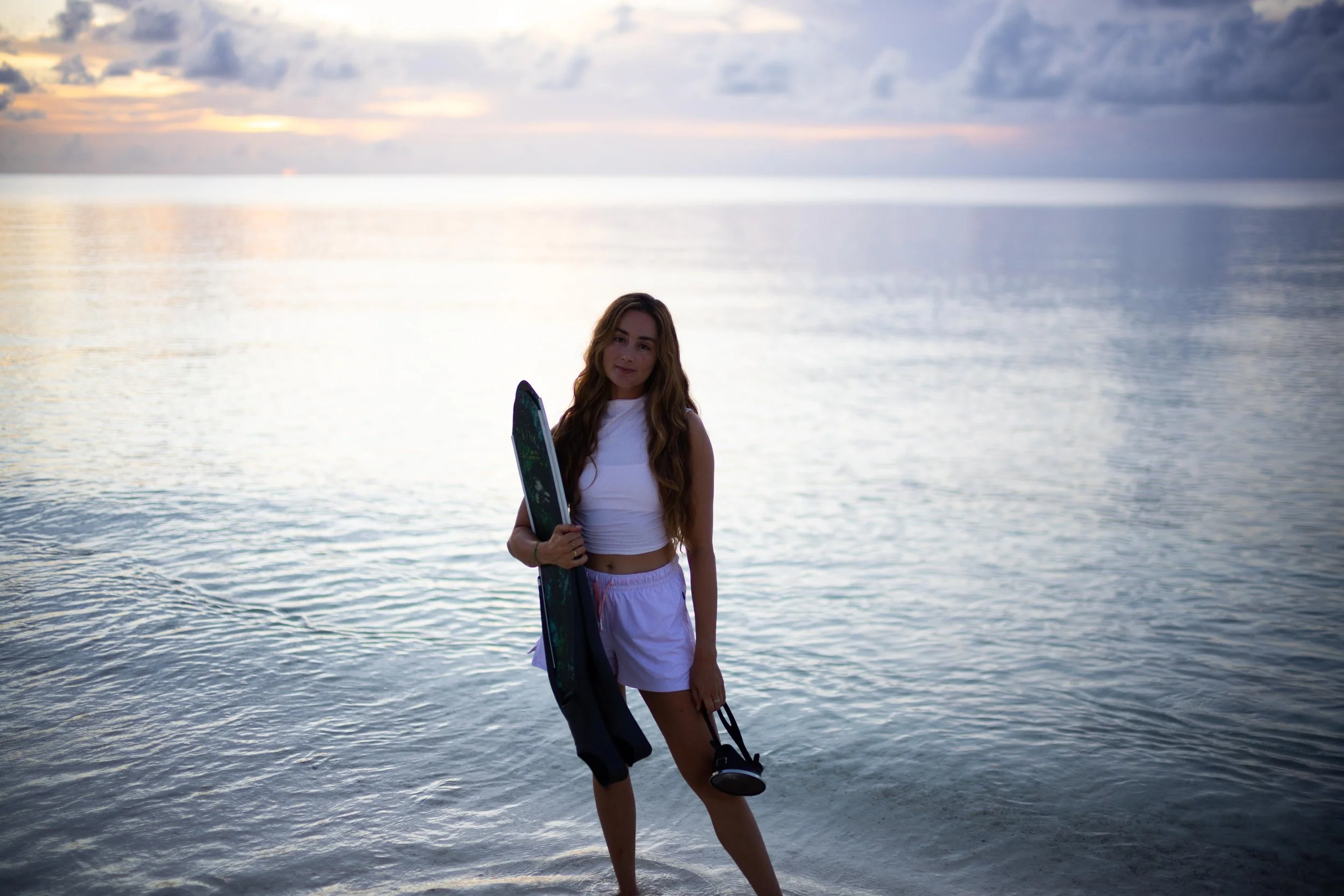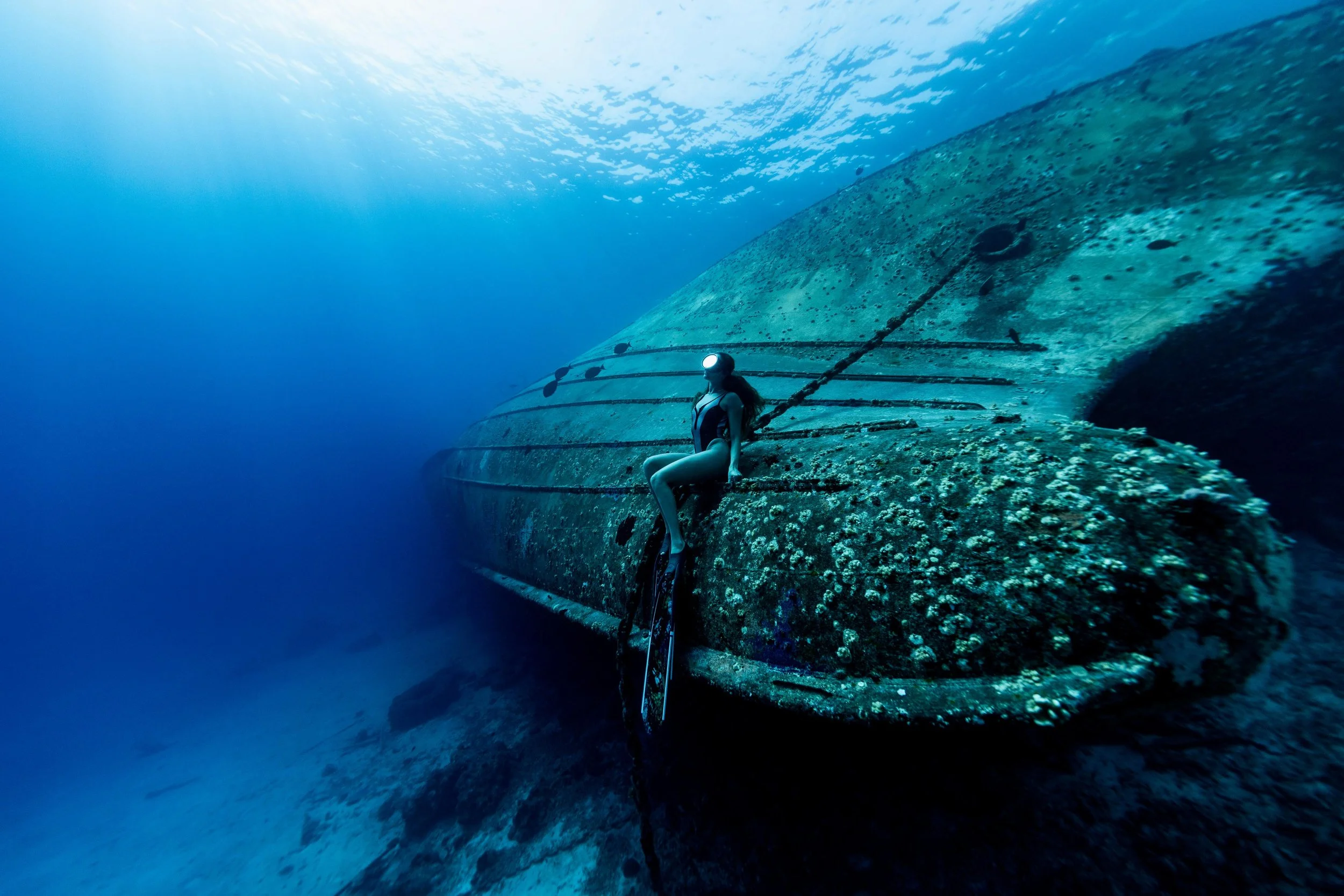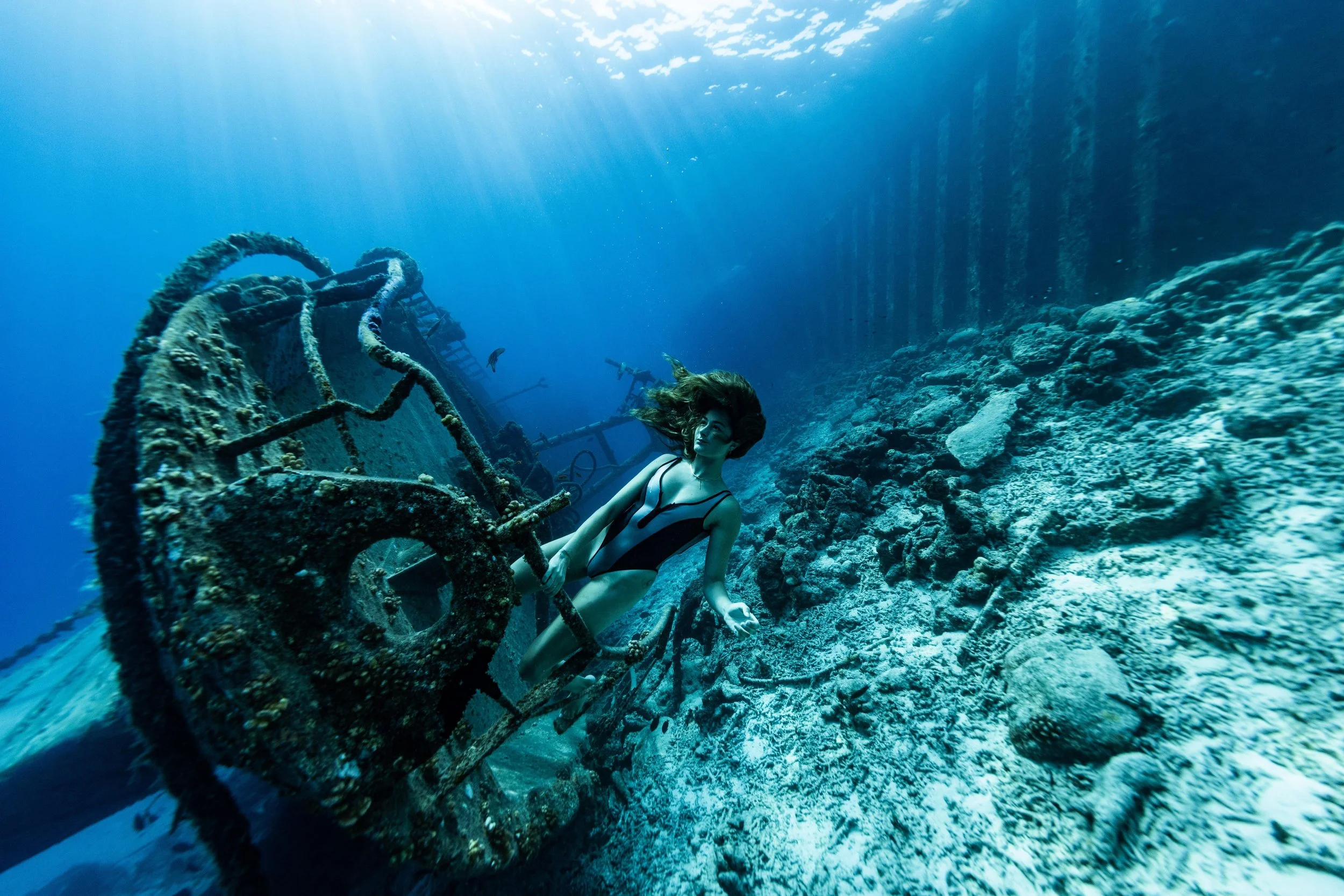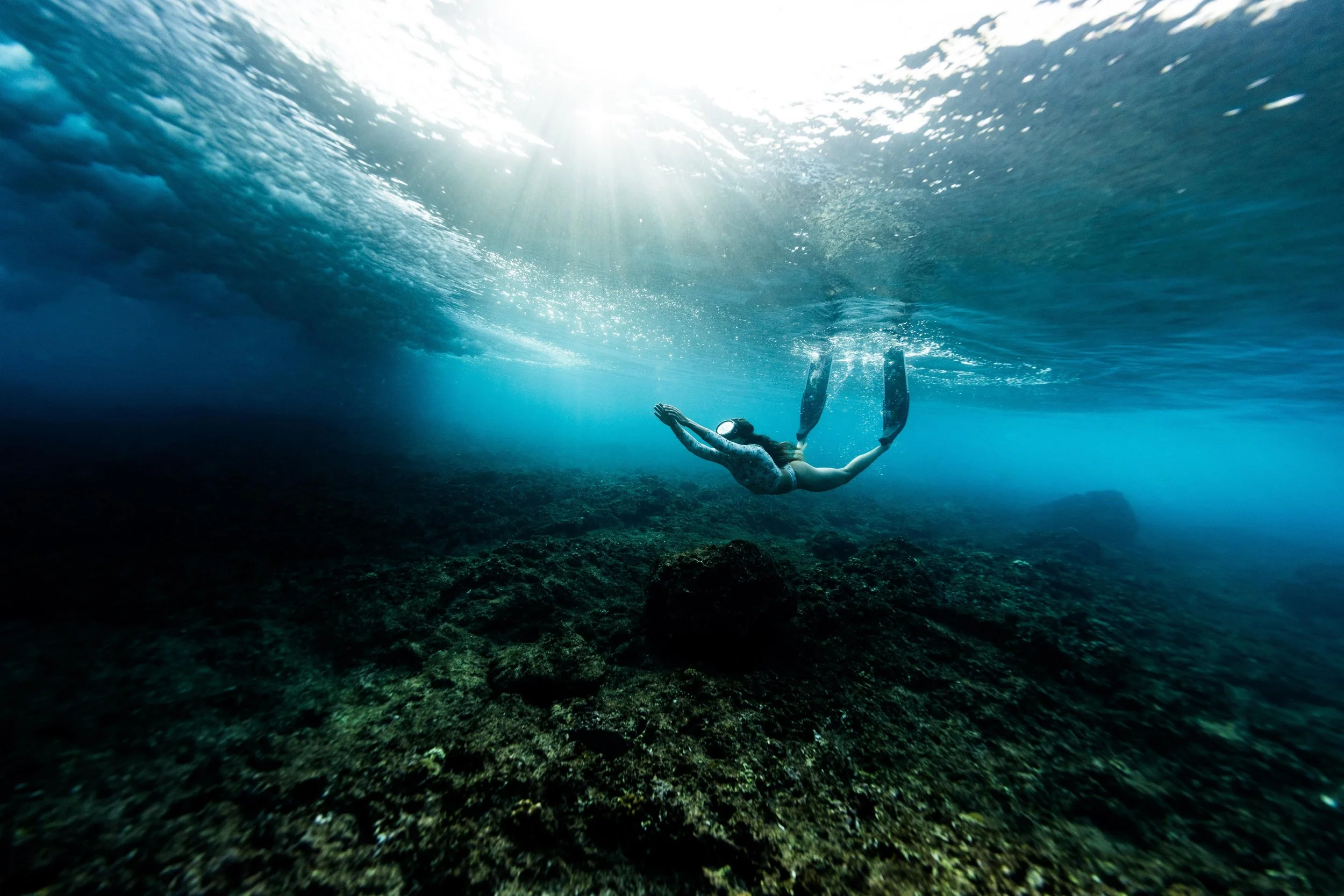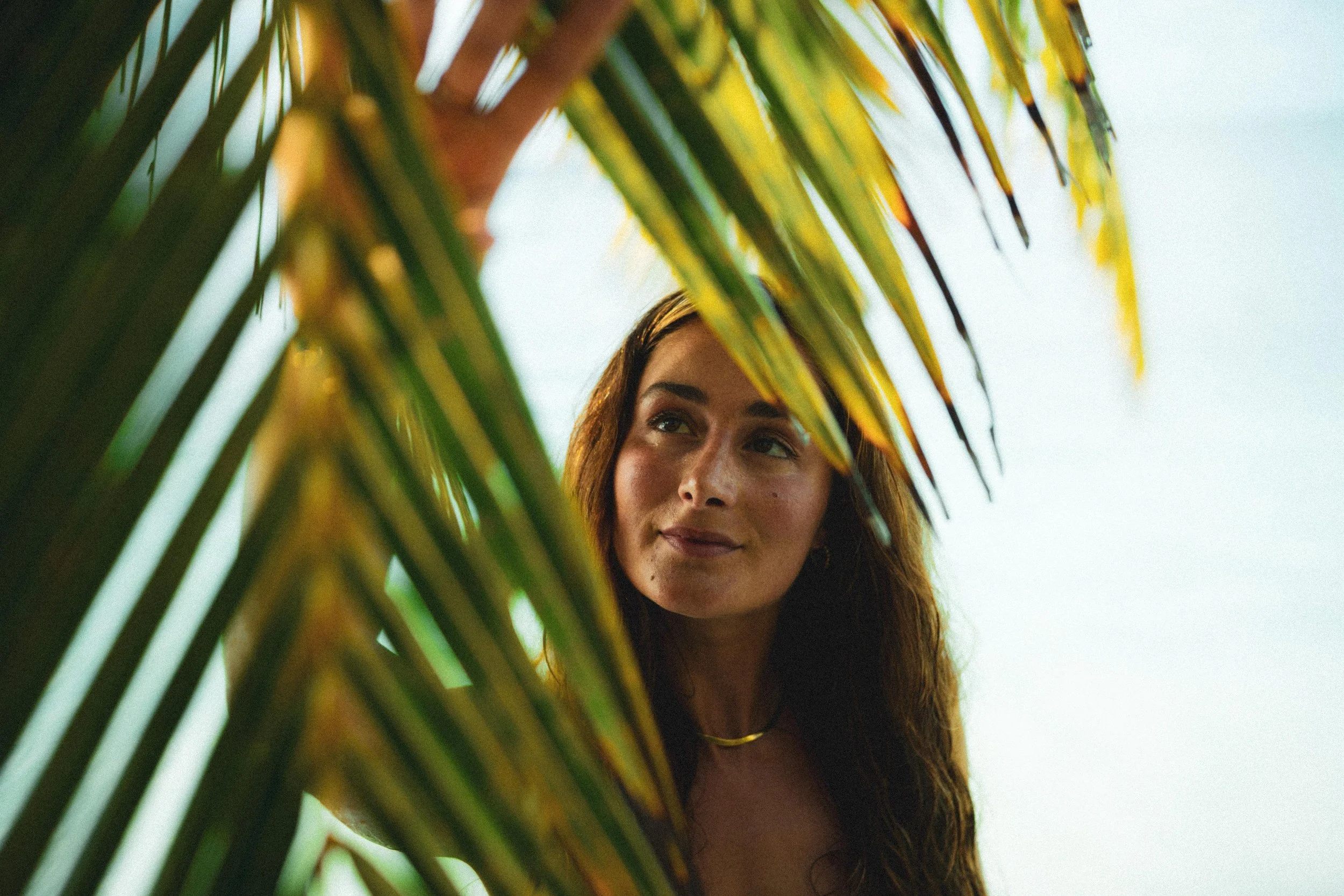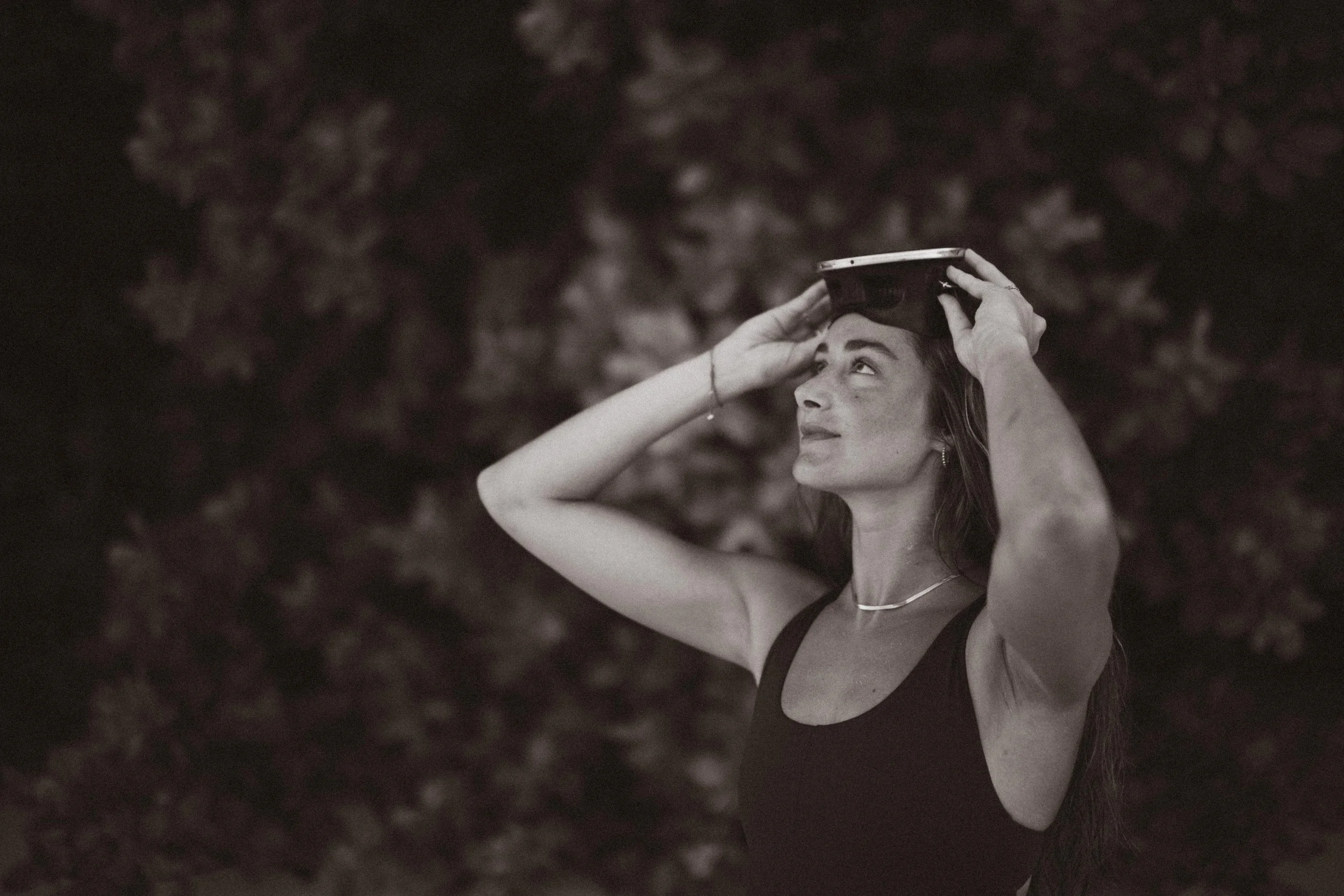One breath at a time: ‘Woman of the sea’ Nikki Muscat on finding her passion
Nikki Muscat. All photos by Perrin James
From the familiar Maltese waters, to the depths of the Indian Ocean, NIKKI MUSCAT’s life has always revolved around the sea. A two-time Olympian turned freediver and conservationist, she speaks about passion, purpose, and how believing in yourself can transform not only your life, but also the world around you.
Let’s start from the beginning. Where did your passion for the sea come from?
I grew up in Malta, so I was always connected to the sea. My dad was always in the water - he was a diver and started taking me to the sea when I was only seven days old. The sea has always been a big part of our lives. So, my earliest memories are of the sea, fish, and play.
My parents also encouraged me to take up sports because scoliosis runs in our family, and swimming was perfect for strengthening the back. From the moment my mum put me in the pool at age four, she couldn’t get me out. All my childhood memories are connected to the sea. Because I fell in love with it through play and family, I connected that love to the training once I started to train.
By six, I was watching the Olympics with my mum, saw the Maltese team enter the stadium - and the woman representing our country. The fact that there was a woman there was very powerful for a six-year-old. For some reason, I told my mother: “I want to be there.” She said: “If we work hard enough, we’ll get there.” Twelve years later, I was representing Malta at the Olympics - first in London and then in Rio. Before that, there was a crazy amount of work and training.
It was a long road - full of dedication and, honestly, a lot of politics. Malta is small, and unfortunately, sports can be very political here. Nepotism exists even in something as black-and-white as swimming, where results are literally measured by the stopwatch. But even with black-and-white results, politics still had a say. This made it a very, very hard time.
As a young athlete, how did you stay so committed?
My motivation always came from within. For me, it came naturally. My idea of being grounded wasn’t being sent to my room - it was being told I couldn’t go to training. My mum taking me two minutes late would make me anxious.
Even when I wasn’t really good at it, I still loved it, and then it became even more addictive. I started training twice a day at 12, and sometimes three times a day by 15. You can’t do that unless you truly love it. No one can force you to do something like that. Now that I run my swim club, I always say there’s no point in forcing kids to do what they don’t want to do.
How did you transition from swimming to freediving?
After the Rio Olympics in 2016, I had just turned 22. I knew I wanted to move away from competitive swimming. I was emotionally exhausted and needed to take a step back. Physically, I was fine, but I felt I had lost my identity once I stopped competing. I’d always been “Nikki the swimmer.”
I decided to take a break, finished my nursing degree, and started working as a nurse. But the sea kept calling me back. I started to fall in love with conservation. I ended up volunteering in the Philippines with whale sharks and turtles, and that’s where I discovered freediving as a sport that could help me stay connected to conservation.
I took a course there at the age 24 and instantly fell in love. Freediving allowed me to reconnect with the sea on a completely different level - it wasn’t about competition anymore. It was about connection, awareness, and conservation. I eventually decided to quit nursing.
Why freediving for conservation instead of scuba diving?
Technically, scuba gives you more time underwater, but freediving gives you something deeper: connection. When you’re on your own breath, you feel part of the ocean, not just an observer. When you’re on your own air, you feel like you belong to the sea and you’re with the animals - you can connect. When there’s scuba, there’s a veil between you.
It’s quiet, meditative, and you move like the animals do.
“When you’re on your own breath, you feel part of the ocean… like you belong to the sea.”
When I began freediving, I worked with NGOs in Malta and abroad, contributing to photo ID research for whale sharks and turtles, and starting plastic awareness initiatives. The rest has been about education - giving school talks and encouraging more people to fall in love with the sea.
Women of the Sea, the short film made about me by artist Aprille Zammit, was the start of that journey. These days, I run trips that combine eco-tourism, education, and conservation. The dream is to fund research and NGOs through these trips - where people can learn, explore, and support marine protection all at once.
Have you ever been afraid underwater?
Not really. I think we fear what we don’t understand. Sharks are not the vicious creatures the media makes them out to be. I’ve been as close as ten centimetres from one. Sometimes they even brush past us accidentally. The lack of education is the root of a lot of fear.
Sharks deserve respect, not fear. We don’t want to picture them as puppies because they’re not. But they’re also not monsters. If you approach the sea without respect, that’s when you get into trouble. It’s their world, and we’re just visitors.
How has this sport shaped your relationship with your body and body image?
I’ve always seen my body as a tool for movement - a vessel that allows me to do what I love. Growing up as a swimmer, I’m a naturally lean person, and I had the opposite problem of wanting to be stronger and more muscular. It’s funny how we all want what we don’t have.
But for me, my body has always been about function, not appearance. It gives me access to the sea, to the freedom of movement, and that’s something I’m grateful for.
How have your passions shaped your career?
I run my swim club in Malta and also my own social media page, which has become a business in itself. As mentioned earlier, I also organize freediving retreats and trips abroad - in places like the Maldives, Egypt, and Mexico - combining travel, education, and conservation.
It looks like I’m always on holiday, but it’s actually a lot of work: planning, scouting, teaching, and ensuring every trip aligns with my values of sustainability and respect for marine life. I also teach freediving and run trips in Malta.
I always scout locations myself first to make sure they’re safe and ethical. I prefer sailboats for our boat trips to minimize environmental impact. Malta and Gozo are still home base for me. Our waters have some of the best visibility in the world - perfect for both freediving and scuba. The wrecks are magic, and we have the depth.
What advice would you give to women who want to follow a passion?
Women tend to doubt themselves. Many women I know face a lot of self-doubt when they’re starting something, so you really need to be your number one fan. Believe in yourself - really, truly believe. No one else will do it for you. Be your biggest supporter, because self-doubt can kill dreams before they start.
“Be your biggest supporter, because self-doubt can kill dreams before they start.”
Believe in your vision. Nowadays, it’s all about instant gratification, but nothing happens overnight. What people see on social media is the highlight reel - behind it are years of hard work. Stay focused, stay patient, and keep showing up for yourself.
I hope that people watching Woman of the Sea, or following my work, fall in love with the ocean too. Because once you love something deeply, you naturally want to protect it. That’s how real conservation begins - with connection.
You can follow Nikki on Instagram
Share your story
Is there a woman-related subject you feel needs to be ‘unclouded’, spoken about, or explained? Is there something you feel passionately about? If so, share your views… or share your story - to inspire and help other women.
Woman Unclouded believes that by sharing stories, experiences and expertise, women can inspire one another - to take the leap, or to simply make sense of things.
All you have to do is drop us an email at hello@womanunclouded.com

